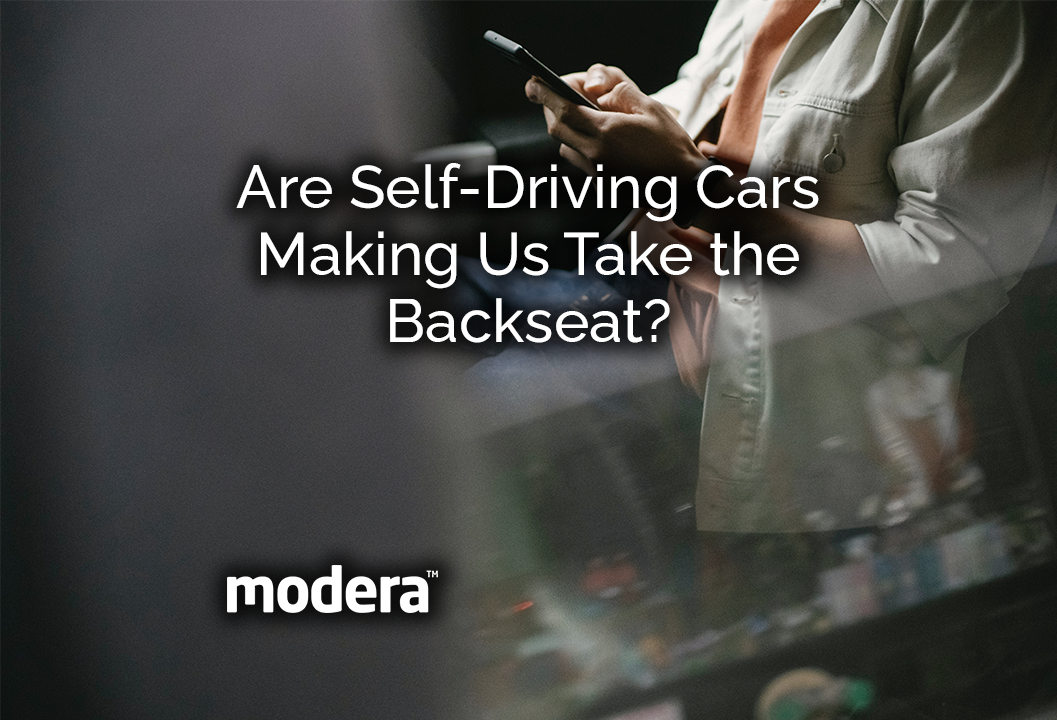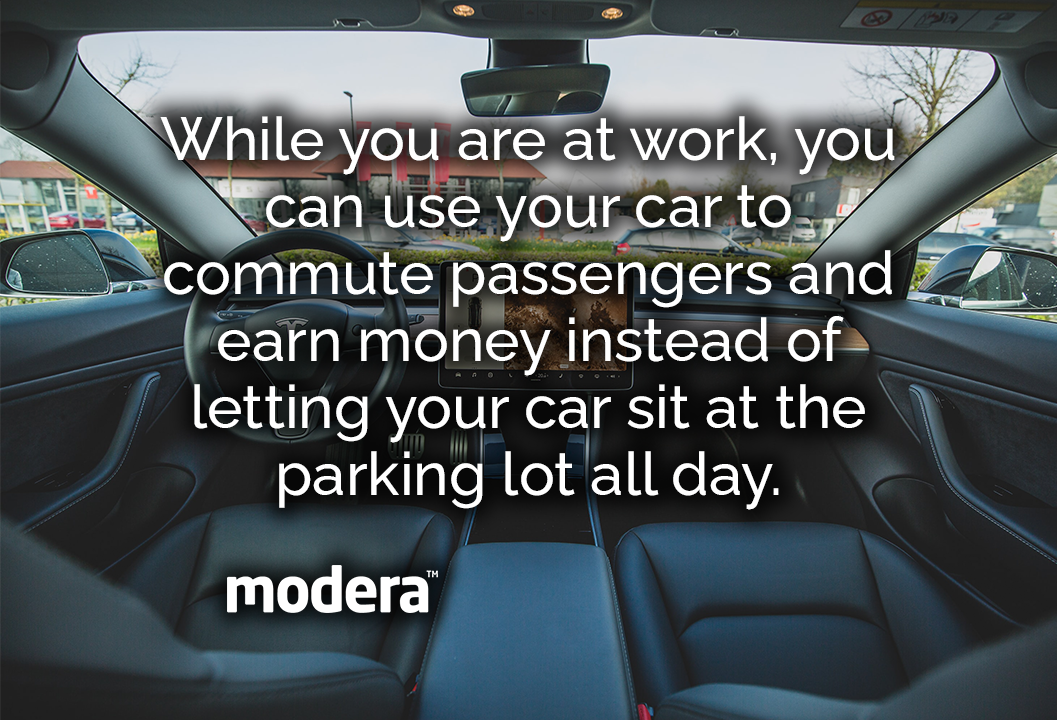There has been a lot of debate about self-driving cars over the last few years, and for good reason. These cars are expected to bring not only a big revolution for the society but for the automotive industry as well. It appears that almost everyone is getting a hang of them. From Apple self-driving cars to driverless car apps from Uber and Lyft, autonomous cars are expected to become staples in the industry within a few years. So, are they making us take the backseat? Let’s find out.

What are Self-Driving Cars?
Self-driving cars take ADAS safety functions to the next level by completely eliminating the need for a driver. These functions include pre-collision warnings, automatic braking, and steering assistance. These cars rely on actuators, sensors, machine learning systems, powerful processors, and complex algorithms to execute software and maneuver the vehicle. Predictive modeling, object recognition, algorithms to avoid obstacles, and hard-coded rules help the vehicle in navigating obstacles while following traffic rules.
There are different levels of autonomy provided in these vehicles:
0 Level: Automated system has no control over the car, but can send prompts of hazards to the driver
1 Level: Both the automated system and the driver have control over the vehicle
2 Level: Automation takes complete control over the vehicle, however, driver intervention is required at times of potential hazards
3 Level: Automation takes full control over the vehicle, however, driver intervention is still possible
4 Level: Automation takes full control over the vehicle; however, it is limited to controlled and geo-fenced areas
5 Level: No driver intervention is needed in the car’s operation

What’s Bringing So Much Interest in Self-Driving Cars?
There are so many obvious benefits of self-driving cars, such as reduced traffic collisions, fatalities, and congestions. Besides these, several other benefits come with car automation. Some of them have been listed below:
- Energy Conservation: Fuel consumption is one of the biggest concerns for Americans, especially because gas prices keep fluctuating frequently. The manner in which you drive your car also dramatically affects your car’s mileage. With a self-driving car, you can track, measure, and control your fuel consumption easily and save money over time. Also, keep in mind that many driverless cars in the market are electric or hybrid, which further add to your fuel savings.
- Increased Productivity: Since you would spend less time behind the wheel stuck in the traffic, you have more time to achieve your career and personal goals. Even when you are on the way, you are able to read, chat, or exercise while the car drives itself. As many dealerships and showrooms have already integrated software systems to carry most of the car sales out online, with self-driving cars you’d probably never have to visit a showroom again – the car will just show up at your door on its own!
- Reduced Expenditure on Infrastructure: As the number of vehicles on the roads increases due to the growing population, the infrastructural needs also grow. Highways, streets, and freeways need to be expanded to accommodate more cars. However, when there are more self-driving cars on the roads, traffic congestion will be reduced and less money and effort will need to be spent on infrastructure upgrades.
- Things Done Automatically: There are limitless scenarios of automation that can improve your quality of life and convenience. Physically disabled, children and elderly people can conveniently reach their destination in self-driving cars. If you left something back at home, your car can bring it to you without you physically going there. You may even send your pet to the veterinarian.
- Reduced CO2 Emissions: Reduced CO2 emissions is a real promise offered by self-driving cars. By 2050, these cars are expected to reduce the number of vehicles on the roads by 30%, lower down transportation costs for fuel, vehicles, and infrastructure by 40%, increase parking spaces, improve walkability, and reduce CO2 emissions in the world by 80%.

Possible Applications
Driverless cars are expected to stir multiple industries across the globe. Some self-driving car applications are possible in the following industries:
- Shipping and Delivery: The shipping and delivery industry is expected to gain a lot from self-driving vehicles. With this, shipping companies will no longer need to depend on humans to send products to different locations. For instance, if you want to send a trailer from one state to the other, there will be no delays due to human centric concerns like driver fatigue, call of nature, hunger, etc. This reduces shipping time considerably.
- Public Transportation: Driverless cars offer the promise of increased public transportation options. Nearly every person can use their self-driving car to shuttle commuters from one place to the other. While you are at work, you can use your car to commute passengers and earn money instead of letting your car sit at the parking lot all day.
- Emergency Transportation: The implementation of self-driving vehicles will allow people to receive medical care much faster than before. With reduced traffic congestion on roads, driverless cars can reach their destination more quickly. Besides that, a person who needs emergency medical attention can automatically adjust the vehicle’s course and reach the nearest medical facility without manually driving.

The Future of Self-Driving Cars
In the near future, self-drive cars are expected to solve different sorts of problems, such as traffic collisions and traffic delays caused due to driver error. However, that doesn’t stop there, as they will bring many new applications in different industries. There’s yet to learn much more about self-driving cars and what changes they are expected to bring to the automotive industry. That is why we’ve put together useful information here that can make you aware of what self-driving cars are and what benefits they can provide.
While the image of a car driving around town without a driver seems to be a downright terrifying thought for many, let’s keep in mind that the world has already numerous automated systems that have made our lives safer, easier, and more convenient. For instance, when you get on a flight, the majority of the plane’s system is operated by its autopilot system, allowing the pilots to focus on other crucial activities like system monitoring, communication, and navigation.
Therefore, it’s possible to look at driverless cars as another automated system that can provide all sorts of assistance, many of which are still not known.

